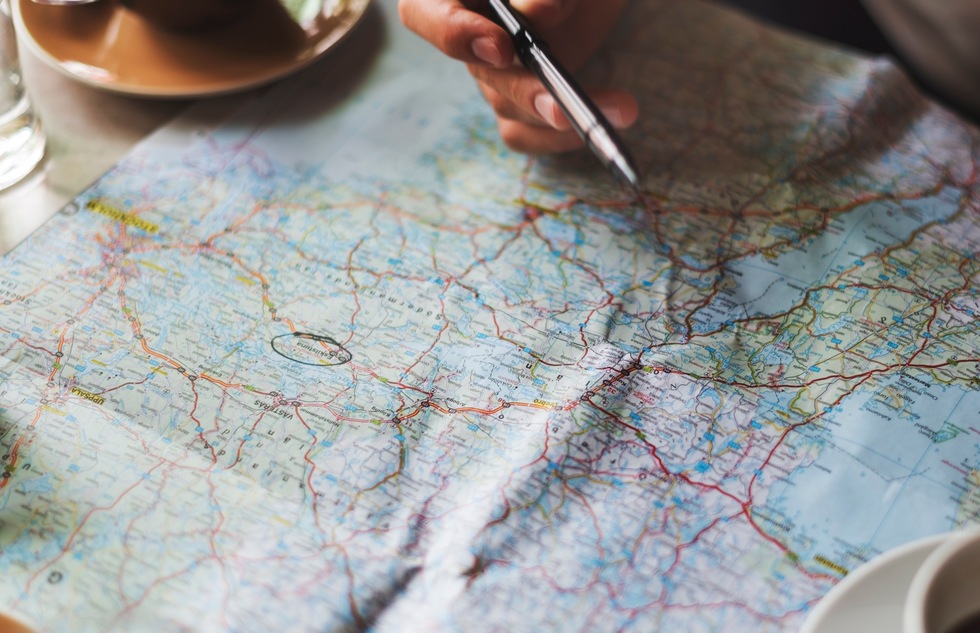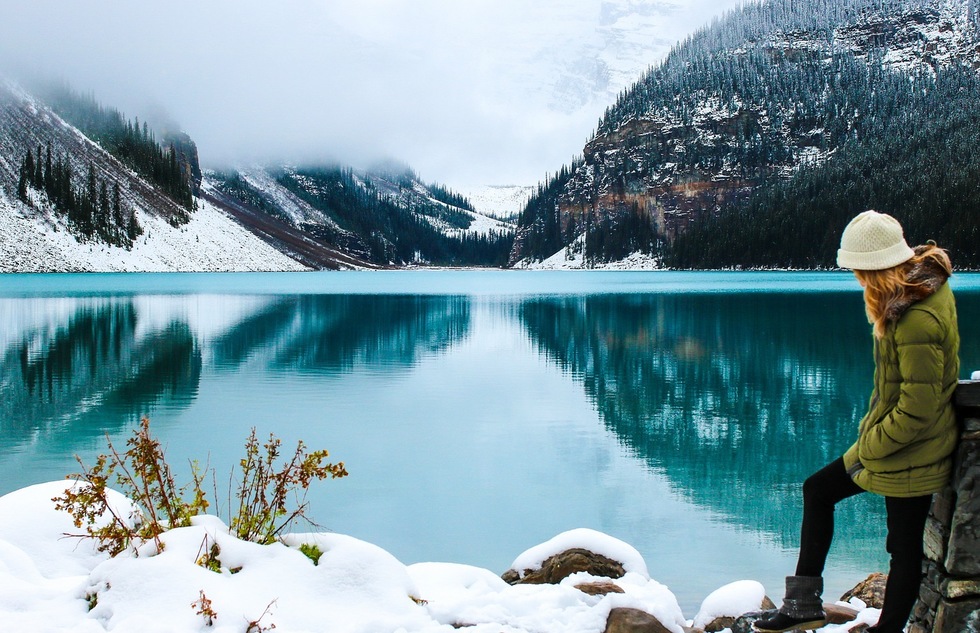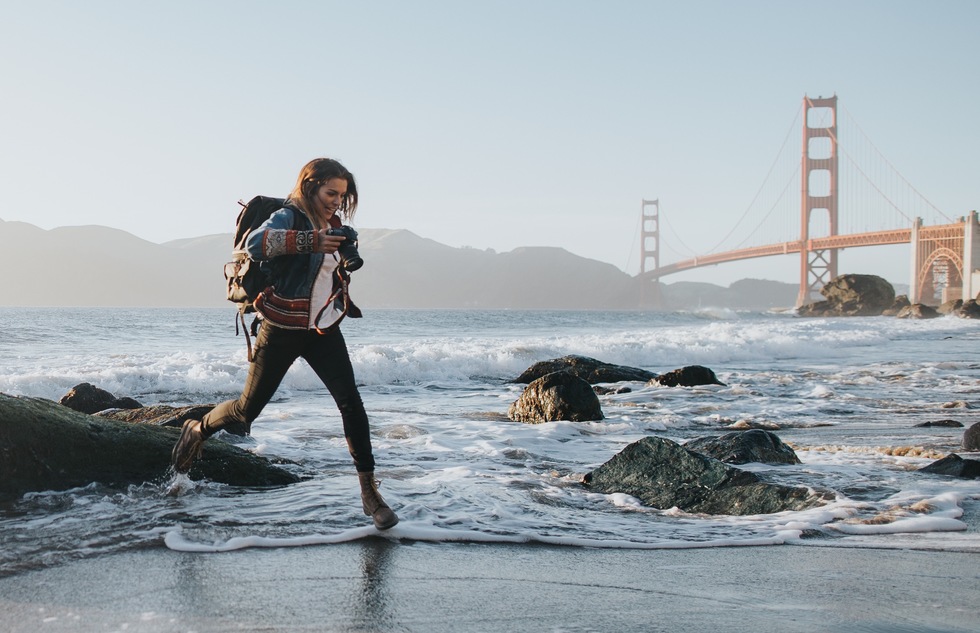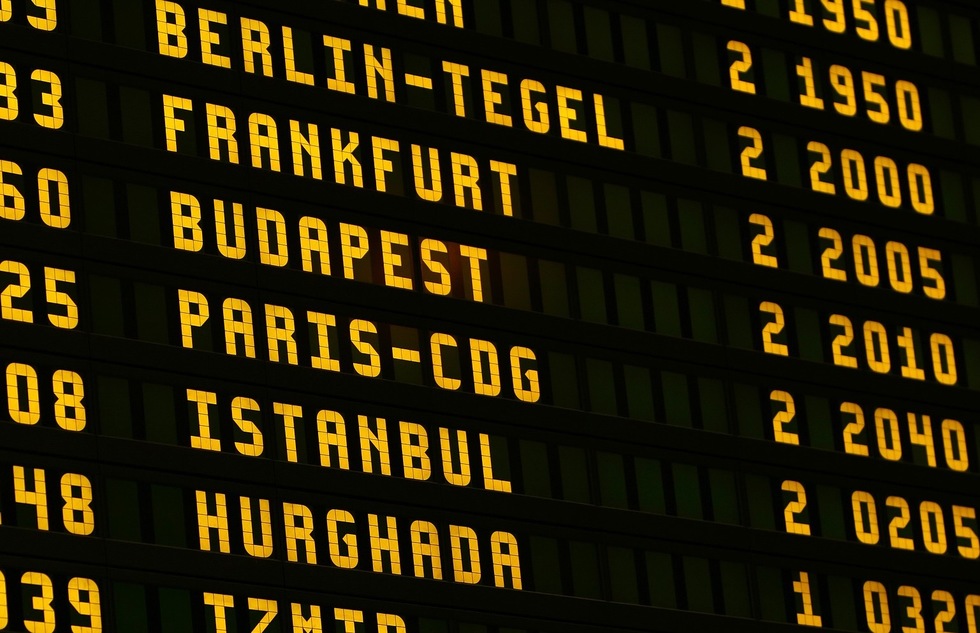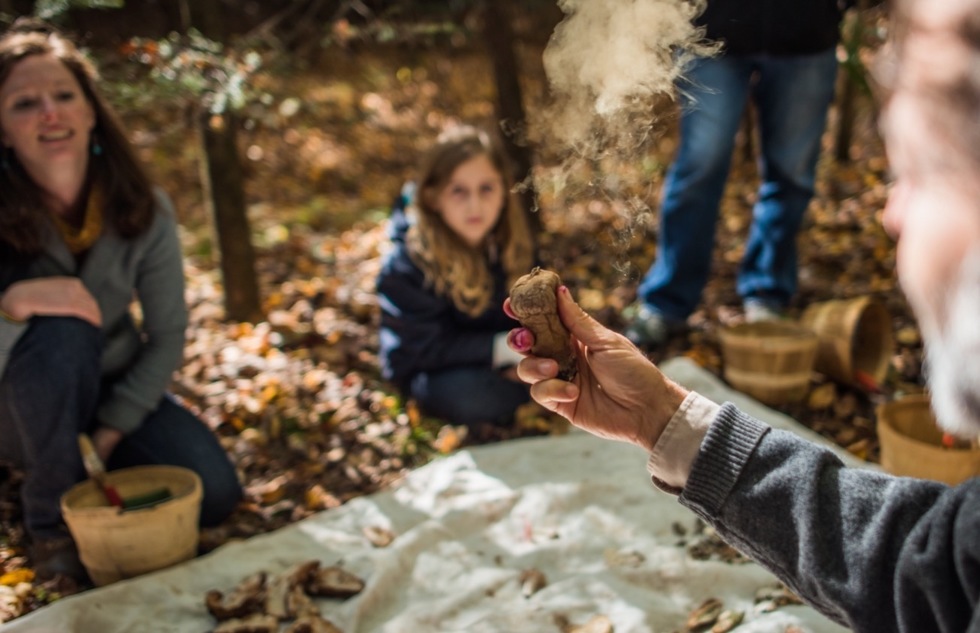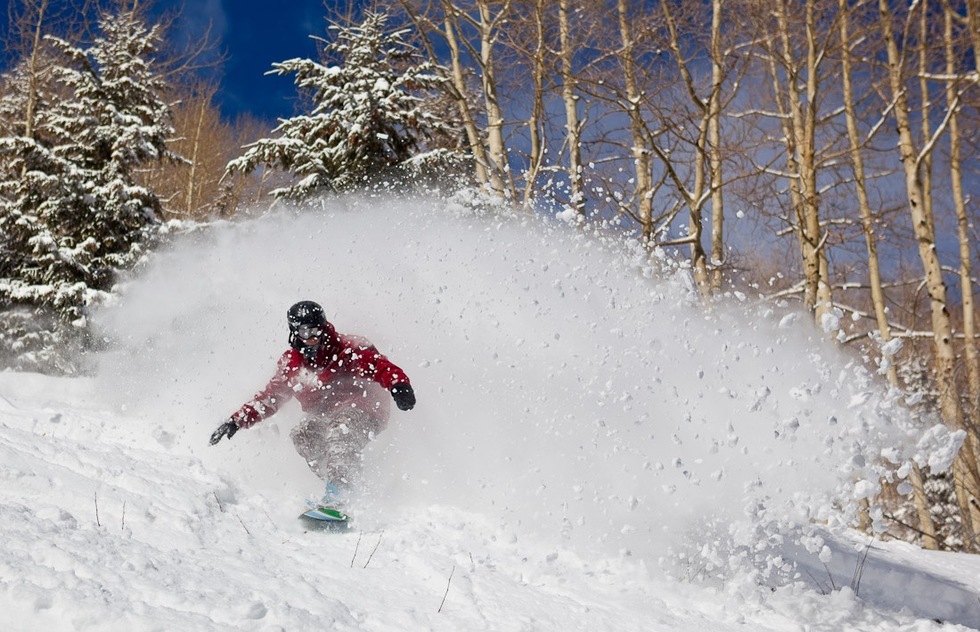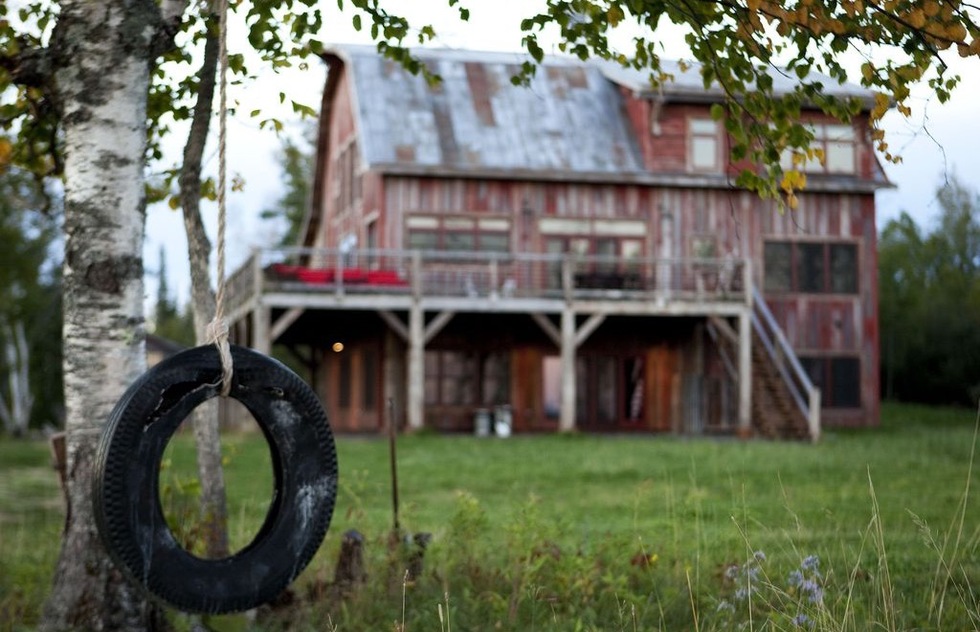The Trends That Will Shape Travel in 2018
By Frommer's StaffGlance at a list of recent travel trends and you’ll be struck by something. Where we visit, the ways we get there, and what we do upon arrival are all shaped by events in the wider world. Climate change expands the channels navigable by cruise ships. The legalization of marijuana begets a cannabis tourism industry. New technology quickly finds its way into apps and doodads for the road. Though we sometimes think of vacation as a break from everything else, it’s impossible to divide things up as neatly as that. Travel is affected by the news.
The travel pros we consulted—along with our own experts—to compile this roundup of 2018’s top trends can't see into the future (as far as we know), but they have their fingers on the heartbeat of world events, and skill and experience are their own kinds of foresight. Here’s what they predict the next year will bring.
You might be putting in more face time at the airport in 2018—literally. Facial recognition systems (part of the biometrics field) are already being tested to speed the boarding, bag drop-off, security, and customs processes at airports in Boston, Atlanta, Minneapolis, and elsewhere. According to Jim Peters, chief technology officer at SITA, the company that developed facial recognition boarding for JetBlue (its system is pictured above), "I think biometrics will go from a handful of airports to in the dozens around the world [in 2018]." That means airlines and airport authorities will decide that the speed and convenience of using your face as a boarding pass outweigh nagging privacy concerns. Beyond that, Peters says we'll soon see fewer humans on the tarmac: Think self-driving baggage trolleys and autonomous jet bridges. "My Roomba can drive itself," he points out. "Why can't the jet bridge?"
Once you leave the airport, you'll find more futuristic gizmos (and more privacy concerns) at the big hotel chains, which are bringing smart home technology to your home away from home. They’re starting out small, with, for instance, Amazon Echo voice-controlled speakers in many Marriott International and Wynn Resorts rooms. But brands such as Marriott and Hilton Worldwide are also rolling out fully integrated spaces with your preloaded thermostat, lighting, and entertainment preferences ready to be controlled by voice or smartphone. "Alexa, refill the mini bar."
As for flights within the continent of Europe, Geronemus doesn’t think that the recent consolidation of many of the smaller low-cost airlines will have much effect on pricing. Even though a number of these upstart airlines have been gobbled up by larger ones in the last year, "there’s still healthy competition," he says. "And you have to remember that travelers have alternatives if they’re traveling around the continent of Europe. Many take trains, buses, or drive."
Following another year of record-setting high temperatures and extreme weather, Planet Earth will continue to sound the alarm about climate change in 2018. Those in the sustainable travel movement—dedicated to appreciating and preserving the unique natural and cultural features of the places we visit—say that threats to the globe actually encourage an increase in the sort of tourism designed to help more than hurt. "Responsible travel will continue to grow in the wake of issues such as climate change . . . [and despite] recent news about limiting the EPA, weakening the Endangered Species Act, and the Trump Administration's attacks on our national parks and monuments," argues Bret Love of Green Global Travel. For earth-conscious travelers, those developments are spurs to action and appreciation, prompting treks to see endangered mountain gorillas in Africa and to rapidly melting icebergs in the Arctic.
Rafting and adventure company OARS likewise reports a spike in interest for trips to places like Utah, Colorado, and Idaho, attributing the demand in part to the "changing political landscape" and calls to drill for oil at the expense of rivers and wildlife. As that rhetoric shows no signs of cooling in 2018, we’ll likely see more tours catering to those looking to counter the threats and enjoy the great outdoors before it’s too late.
Solo travel has exploded in popularity in recent years, possibly due to increased numbers of unmarried adults. The trend will undoubtedly carry into 2018, but with an added bonus: “More tour operators are waiving single supplements now,” says Jillian Dickens, founder of travel consultancy firm Bannikin, referring to the high fees solo travelers have traditionally been charged by tour companies to cover accommodations, meals, and other expenses usually priced for two. Solo-only tours that charge no or reduced single supplement fees have been announced by operators large and small, such as Intrepid Travel (one of the industry’s biggest names), Overseas Adventure Travel, G Adventures, Adventure Canada, and others. Dickens thinks robust consumer demand is driving the change, but how can the companies afford it? "That is the question we have," she answers. "Will this change the way travel is bought and sold and packaged?"
It’s already changing the cruise industry. Hit the high seas on your own in 2018 and you can choose from a wide array of cabins built and priced for solo travelers (sans supplements) on ships from Norwegian, Royal Caribbean, Cunard, and Celebrity Cruises (which has recently introduced a new stateroom category geared toward singles) as well as several smaller lines such as P&O Cruises and Fred Olsen Cruises. There are even solo cabins on some river cruise lines now.
"Go to your room" was a punishment Mom and Dad might have doled out, but hotels these days want to keep you out of it. They want you in the lobby, or as it's known at many properties, the "living room" or the "co-working space." Although the concept has been brewing in the industry for years, the trend has accelerated, and more lobby-centric chains have sprung up or are in the works alongside older hotels renovating to make their common areas more comfy. According to Dr. Bjorn Hanson, who teaches hospitality and tourism at New York University’s Tisch Center, this design trend is a response to Airbnb’s "residential appeal" and also tracks the preferences of younger travelers. "Millennials spend much less time in their hotel rooms than prior generations, and much more time in the lobby," he says.
But we have to wonder if something less obvious accounts for this new pattern of behavior. As Dr. Hanson notes, guest rooms have shrunk significantly in the last half century, starting at an average of 375 sq. ft. in the 1970s, dropping to 325 sq. ft. in the '80s and '90s, and averaging just 290 today. In-room desk space has also been shrinking. But there is an upside for hotels if guests dawdle in the lobby: There's more to sell them there, like cocktails and food, than there is in their rooms.
The big story at sea in 2018 will be the boom in adventure and expedition cruising. These active voyages in far-flung places like the Galapagos Islands and Antarctica—typically involving ships of manageable size and lots of trips to shore aboard inflatable Zodiac boats—speak to contemporary cruisers’ aversion to the "’been there, done that’ type of travel," according to Liz Einbinder of adventure travel company Backroads. "A few years ago we launched active river cruises, which were an immediate hit," she says, "and we just announced our active small ship ocean cruise segment, which is proving to be very popular with our guests."
Leading cruise lines in the expedition niche, such as Lindblad Expeditions and Ponant, are responding to this demand with an unprecedented flurry of shipbuilding—20 vessels are expected to be delivered by the middle of 2019, many of them sporting cool designs to maximize fuel efficiency and keep guests comfortable even while heading deep into polar seas. One of the new ships will be Celebrity Cruises’ sleek, Galapagos-bound Flora, indicating that mainstream lines are now paying more attention to this corner of the market, too.
"Escape room" games—which keep groups confined to themed rooms as they race against the clock to solve puzzles and riddles to retrieve a key—are all the rage right now. The travel equivalent is poised for a surge in popularity in 2018. Going a level beyond the model set by companies like Pack Up + Go (which offers three-day stays in U.S. destinations but doesn't tell you where until just before you leave), newer mystery travel organizers like Cluventure and Jubel stretch the surprise out even longer to make it feel more like an interactive game. After interviewing customers to get a sense of their preferences, Cluventure sends out a series of cryptic, scavenger-hunt-like clues starting about 100 days before departure and continuing throughout the trip, with periodic riddles unlocking preplanned activities like wine tastings, surprise birthday parties, and so on.
Jubel strays even further into The Amazing Race territory, stringing together multiple destinations on a single trip and giving customers a set of sealed envelopes they're not supposed to open until it’s time to move onto the next stop (they can always cheat if spontaneity deserts them). These types of vacations fit the bill when it comes to providing the unique, customized experiences that travelers are said to crave these days. But Cluventure’s Desi Taylor and Monica Stefanac assert that other factors are also at play: "Because mobile technology has become so accessible and people are so used to having information at their fingertips," they wrote us, "they are now seeking to tap into the unknown. With Cluventure, travelers are encouraged to stay in the moment and really experience their surroundings."
Here’s a travel trend that combines several others—sustainability, local experiences, outdoor adventure—in one tasty package. Kicking up the usual culinary tour a notch or two, forage-to-table excursions lead vacationing locavores to fields, forests, and beaches where they scrounge up their own wild ingredients (mushrooms, herbs, berries, greens, and so on) for use in dishes prepared for them later that day at participating hotels and restaurants. Already a hit in Scandinavia, foraging is beginning to take root in North America, too. Alan Muskat, whose No Taste Like Home organizes "find dining" experiences in the Blue Ridge Mountains of North Carolina, reports that year-over-year business has doubled in four out of the last five years. Beyond the fun, uniqueness, and positive environmental impact of foraging, Muskat believes there’s something even more fundamental to its allure. "What people want is an unmediated connection with nature," he says. "When you forage, it isn’t just the food that’s wild and free."
The snow gods can be fickle, especially in this time of climate change. In some recent seasons, Revelstoke in Canada has been buried under 500 inches of snow while due south at Colorado’s Telluride there hasn't been enough to build a snowman. That’s why avid skiers are ponying up for passes that cover multiple resorts in various locations so they can always find snow—these passes are being significantly expanded for the 2017-2018 season, and there's a new one for Europe. "You’d think [buying a pass] would only make sense if you’re a ski dude from the West who has a van," says Everett Potter, contributor to Snow Magazine. "But regular human beings who have jobs and families are also going for these passes. They allow you to hedge your bets, snow-wise, and they pay off so quickly".
The Mountain Collective pass added Snowbasin and Sugarbush this year to an already impressive litter of resorts, including Aspen/Snowmass, Jackson Hole, Alta, and Canada’s Revelstoke. The Epic Pass now covers Stowe in Vermont, along with 30 European resorts, two in Australia, Whistler/Blackcomb in Canada, and such American classics as Vail and Park City. It’s the costlier of the two West-Coast centric passes at $899 (as opposed to the Mountain Collective’s $489), but it doesn’t cap usage at two nights per area like M.C. does. For mountains with fewer legendary runs, there's the M.A.X. Pass which expanded in 2017 to cover 44 mountains, ranging from Killington in Vermont to Stoneham in Quebec province to Steamboat Springs in Colorado. For $779, the M.A.X. pass buys up to 5 days at each resort. None of these passes has blackout dates, and each pays for itself in just 6 to 9 days of skiing (it varies by mountain). In Europe, the Magic Pass debuted in 2017. It covers 25 Swiss resorts and grants unlimited access to the slopes.
This one seems like a no-brainer. Considering that marijuana has been noted for its medicinal and relaxing effects, doesn’t it make sense to incorporate weed at wellness and relaxation retreats in the handful of countries and eight U.S. states (as well as Washington, D.C.) where it’s legal? That sounds to us like a logical addition to the many cannabis cooking classes, dispensary tours, and marijuana-friendly lodgings that already exist in Colorado and Washington state.
Sure enough, a growing number of pot-themed massages and yoga sessions can now be found online, and relaxation pro Darrin Zeer offers two-day weekend intensives in the Rocky Mountains through his 420 Yoga Retreats. "As legalization spreads across the world," he says, "healthy marijuana wellness is expanding as well." Zeer posits that a one-two punch of yoga and marijuana can relieve physical as well as emotional pain and help practitioners cope with our frantic modern world. "As stress levels increase so does the need for radical relaxation," he says. Expect more of his kind of radically relaxing getaways in 2018, especially given that voter-approved legal recreational pot goes into effect on January 1 in California, a tourism juggernaut inhabited by many a yogi and many a toker.
The horse may have bolted, but let's keep those barn doors open for travelers. One of the big new trends in alternative accommodations is barn stays. "Bookings on homes whose owners describe as barns are up 50%," says Melanie Fish of the massive home rental marketplace Homeaway.com. "Many types of unusual lodgings, like treehouses and houseboats are popular, but the boom in requests for barns took us by surprise. That being said, they’re great for groups, as they usually have large living areas. And there’s just something so cool about them." What the hay?
Sturm believes that blockchain technology will start being used in the travel industry in late 2018 or early 2019; he says that in the not-so-distant future, consumers could use this technology for subways, buses, hotels, trains, air travel, and more. Others in the industry think the technology is a bit further from the starting gate, at least when it comes to travel. Norm Rose, a senior technology analyst for Phocuswright, stated at a conference recently that while he thinks Blockchain will be "revolutionary and evolutionary," its implementation is 3 to 5 years away.





